Home Video: An Album Review
Lucy Dacus hits home with her junior album filled with captivating stories about childhood, forbidden relationships, and self discovery.
I give this album a 5 star rating!
It is not often that you find tales of Vacation Bible School, snorting nutmeg, and Slayer in the same album, but Lucy Dacus magically finds a way to combine all the different elements of her childhood into one album, creating the perfect reflection of growing up, insecurity, and childhood naïveté. It is evident that “Home Video” is one of the strongest examples of an artist’s self-awareness and personal growth, and the album even found itself at number 3 on NPR’s 5o Best Albums of 2021. Dacus uses different musical techniques and quirky lyrics to thoroughly pick apart a single moment in time and pick at the heartstrings of her listeners, allowing them to feel a portion of the emotional trauma that she felt as a child.
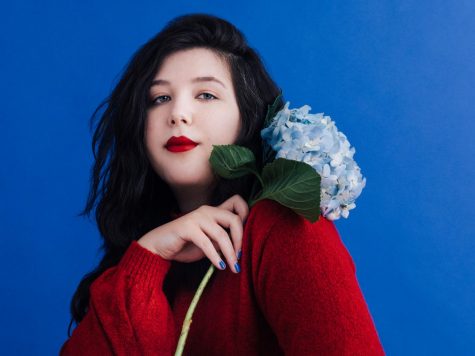
“Home Video” was released in June 2021 and quickly made its way into my top listened-to albums of the year. Out of the 174 albums that I listened to in 2021, “Home Video” took the number one spot for the number of plays at 339 plays. I appreciate the authenticity of all of Dacus’ songs and her unique but soothing voice helps to calm me down in times of stress, which is kind of alarming seeing as I have listened to 57 hours of Lucy Dacus’ music. Trying to figure out which song on the album was officially my favorite was nearly impossible and since I classify this album as a “no-skip album”, I came to the realization that my favorite song will always change depending on how I am feeling. However, I find myself relating to the song, “Please Stay” the most.
“Please Stay“
In my opinion, “Please Stay”, is the most heart-wrenching song on the album. The brutal lyrics and mere desire in this song affect anyone that has been in the same situation, including me. This song describes struggles with mental health, so if this is triggering to you, then I would recommend listening to another song off of the album.
The song starts with Dacus listing the simple details that she would notice if the person that she’s speaking to decides to take their life. She says, “Your clothes in the dryer, Your hair on the shower wall” which are things that most people wouldn’t usually notice, but since Dacus cares so much about this person, she would notice even the tiniest details. At the end of the first verse, she pleads to the person, saying, “please don’t make me see these things.” During the past year, a person very close to me was struggling with mental health, and we had to be apart for an extended period of time. I would find myself looking at their shoes in the hallway, wishing that they could just put them on, wishing that they could be here with me. “I say I love you too because it’s true, what else am I supposed to do? Maybe bar the door when you move to leave.” Dacus feels helpless in this relationship and that the only thing she could think to do is go to great measures to make sure this person is okay, a feeling that I know all too well. In the bridge of the song, she tries to offer this person recommendations that might make them feel better, trying to make up for the fact that there is literally nothing she can do to help this person. “Quit your job, cut your hair, get a dog.”
Call me if you need a friend, or never talk to me again.
I think that Dacus’ willingness to be there for this person or even lose her relationship with them just to know that they are okay makes this lyric the most powerful one of the whole song. I know that when I was in this situation, I was willing to do absolutely anything to make this person stay alive, even to go as far as to never talk to them again. In the outro of the song, the words “Please Stay” are repeated four times, emphasizing how much Dacus wants this person to stay alive. Dacus doesn’t hold back in this song, she allows the insecurity and emotion to show in her voice, which contributes to the theme of the album.
“VBS” and “Partner in Crime“
Songs, “VBS” and “Partner in Crime” highlight relationships that Dacus had during different stages of her childhood. “VBS”, meaning “Vacation Bible School”, tells the story of Lucy’s first relationship, which took place during a vacation bible school that she attended in 2007. At the time, Dacus was a very devoted Christian, hoping to spread the “word of God” to the masses. When she met this boy at VBS, who valued weed and snorting nutmeg more than Jesus, she took it upon herself to save him. The lyrics of the song show that there was more to this pretentious bad boy than was on the surface. The lyrics, “Your dad keeps his sleeves down through the summer for a reason, your mother wears her makeup extra thick for a reason” bring readers deeper into the narrative of the boy, describing his parent’s abusive relationship.
“While you’re going to sleep, your mind keeps you awake
And it makes your heart beat fast and loud
There’s nothing you can do, but the only thing you’ve found:
Playing Slayer at full volume helps to drown it out”
This verse is followed by heavy metal, imitating the band, Slayer, demonstrating the acceptance that saving the boy with Jesus wasn’t possible and that she should allow him to deal with things his way.
The intelligent use of music to represent the lessons that Dacus learned throughout her childhood relationships is also shown in the song, “Partner in Crime.” Throughout the song, Dacus applies auto-tune to her voice, reflecting the artificiality in her relationship with an older man. The first lyric is, “When I asked you to coffee, could you tell that I don’t drink it?” Since coffee is usually seen as an adult drink, Dacus displays her innocence going into the relationship. She goes on to describe all of the lies that she tells this man, “When you asked my age, I lied” and accepts the fact that she walked into the relationship on her own. The theme of Dacus’ innocence throughout the relationship is continued when she says, “Picking petals to see if you will be mine/Do you love me? Do you love me not?” a common phrase in childhood relationships.
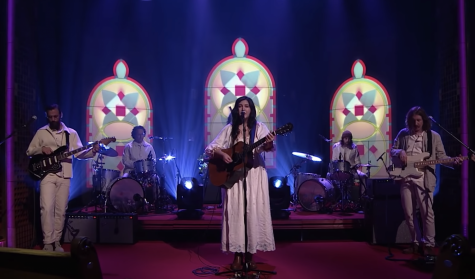
Lucy’s deep, one-sided admiration for this person is apparent throughout the song. Dacus calls her boyfriend at the time her partner in crime, a brilliant but disturbing title for their relationship. This being an illegal relationship, both parties are seen as guilty, being literal partners in crime. “Drop me off at the curb by my curfew/Around the corner so nobody sees you.” The secrecy and phoniness in this relationship are very toxic, and the willingness of Dacus to accept this makes “Partner in Crime” a perfect song for “Home Video. ”
“Triple Dog Dare“
The song “Triple Dog Dare” is the best example of a closing track on an album that I have ever heard. This song brings an interactive aspect to the album, something that most albums these days don’t have. Dacus describes a friendship that she had in her teenage years, with the possibility of being more than platonic. The first verse shows Dacus’ true admiration for the friend, breaking down a scene in a Five and Dime store. “You’re dancing in the isle cause’ the radio is singing you a song you know, and the kid at the counter is gawking at your grace/ I can tell what he’s thinking by the look on his face/ It’s not his fault, I’m sure I’d look the same.” Following this glimpse of admiration, Dacus brilliantly introduces the downfall of the relationship. She says, “Your mama read my palm/Shе wouldn’t tell me what it was she saw/But after that, you weren’t allowed to spend the night.” Since Dacus grew up in a small, conservative town in Virginia, most people were not supportive of same-sex relationships, including Dacus’ friend’s mother. Once the mother started to suspect that Lucy’s feelings for her daughter were more than platonic, she cut off her child from seeing her. Even though Lucy’s friend felt the same way, she was too scared to admit her feelings for Dacus, causing her to tell Lucy that they were cursed. Both girls were raised in Chrisitan families, where homosexuality isn’t necessarily accepted. The fear that this created in both girls is what technically ends their relationship, but Dacus doesn’t let the story end there. She creates her own, fictional, story for the girls and leaves it open-ended, allowing fans to make their own ending to the story. She starts the story by saying, “I wanna run away and live on your family’s boat/It’s a triple dog dare, you’re a chicken if you don’t.” This concept of a triple-dog-dare is Lucy trying to get this girl to leave behind the fear and judgment of her mother and come live out in the open with her. The girl ends up joining Dacus on an escape mission to another island. She doesn’t say if the girls stay together or if they make it to where they are going, which I think is brilliant because it allows fans to connect to the song by creating their own ending.
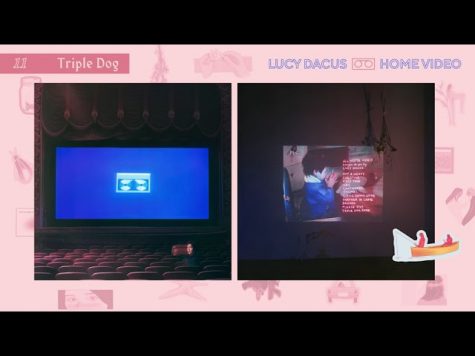
“Triple Dog Dare” concludes the album so perfectly because the girls in the story are literally escaping from the constraints of their childhood, a theme that is widely expressed on “Home Video.”
Overall, “Home Video” is an amazing album about childhood reflection and growth. This album has helped me through many tough times in this constant state of change, and I would reccomend it to anyone who wants a revolutionary and life-changing piece of music. I would also reccomend this album to people who love the artists, Phoebe Bridgers and Julien Baker, whose vocals make many background appearanes throughout the album!
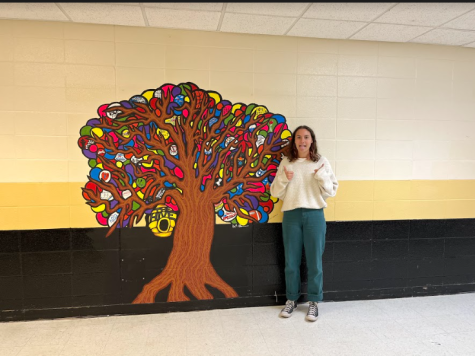
Logan is a senior at WCHS and this is her first year as an editor and her second year as a journalist for The Jacket Journal. In her free time, she enjoys...




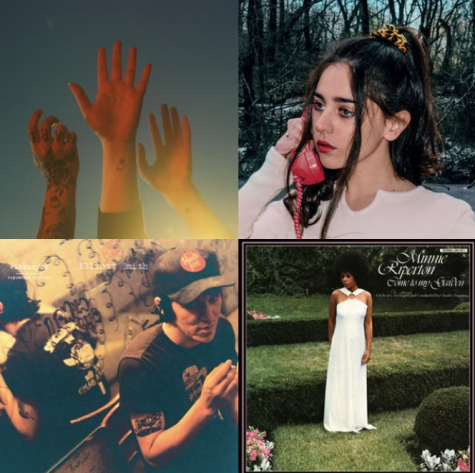

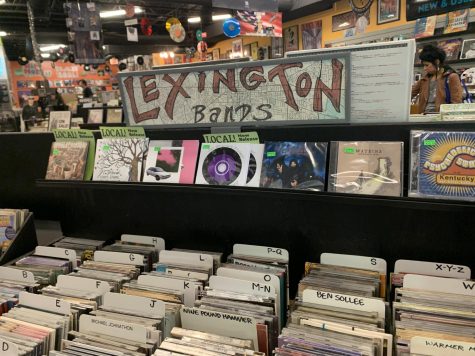




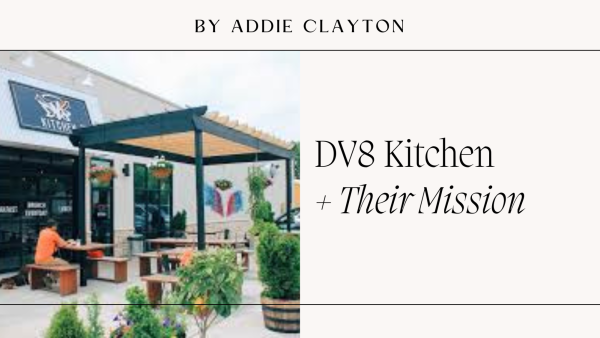
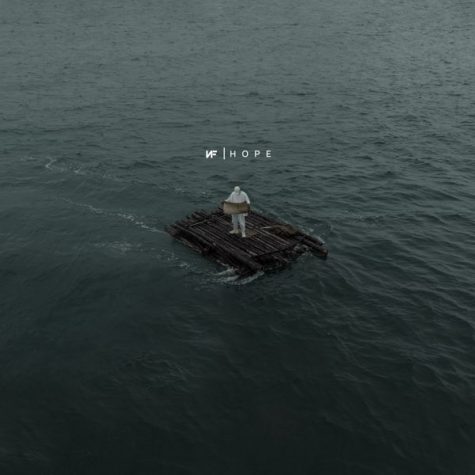
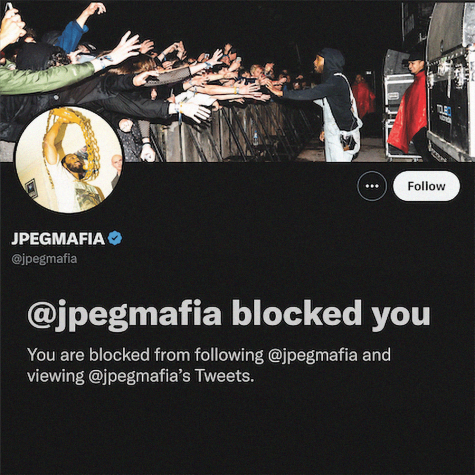


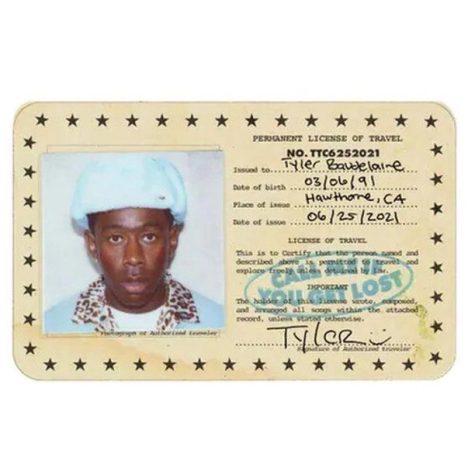

Lucas Mckale • Feb 13, 2022 at 8:32 PM
This is so good!!! Best article ever written
Stella Londrigan • Dec 16, 2021 at 1:05 PM
THIS IS SO GOOD LOGAN WOW!!!!!!!!!!!
Logan Weaver • Dec 16, 2021 at 1:19 PM
THANK YOU STELLA!!!!!